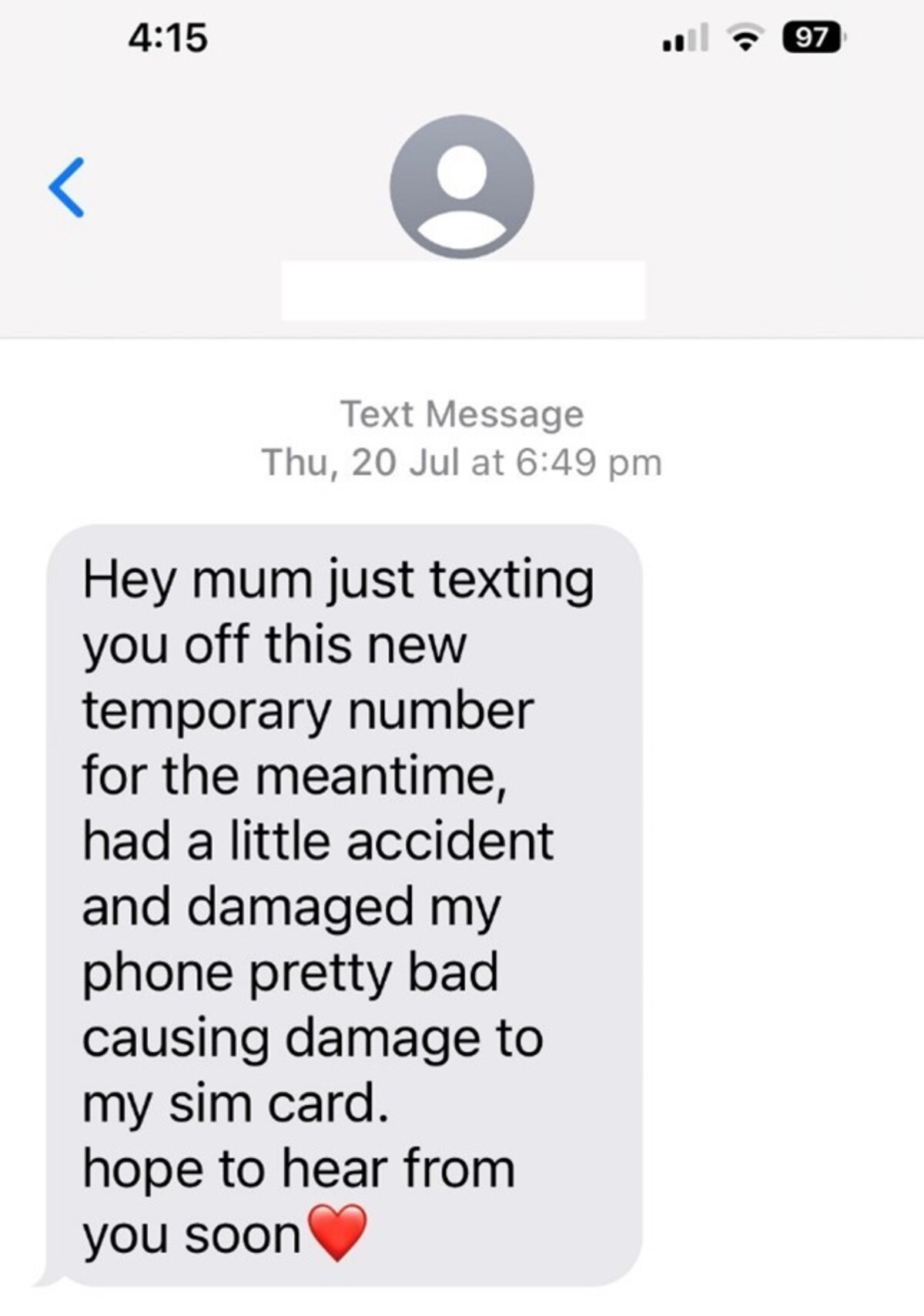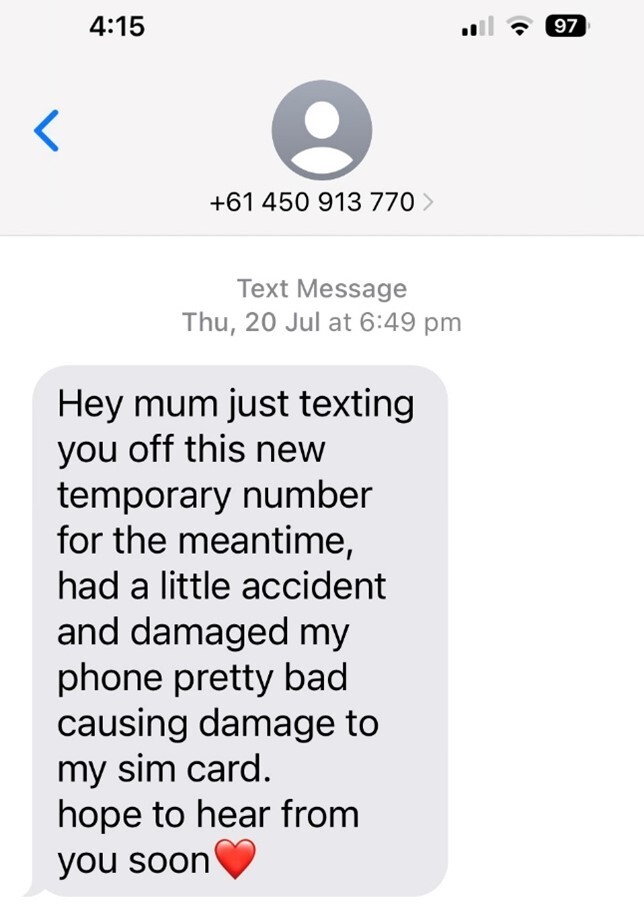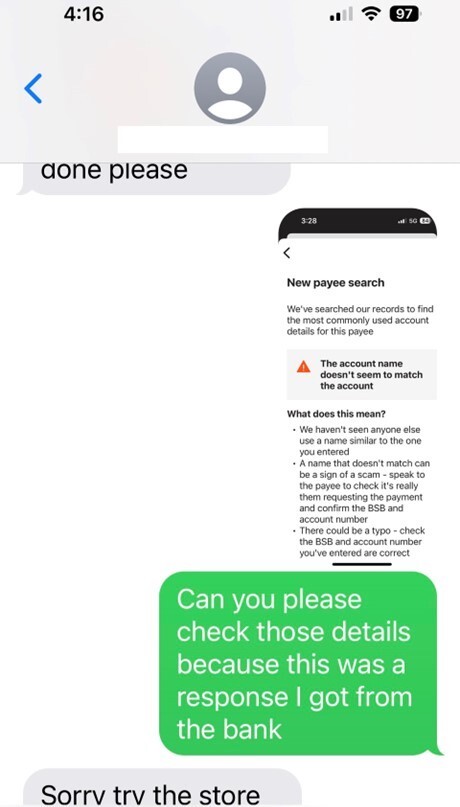Rampant scams afoot
Donna Portland
11 August 2023, 1:04 AM

A Kiama resident, wants others to be aware of how easy it is to get fooled. Beth, not her real name …bit embarrassed… shared with The Bugle.

Beth is no fool, she has a middle management role, is well educated, has a teenage son and is a busy woman. She was sent a text that read: “Hey mum just texting you off this new temporary number for the meantime, had a little accident and damaged my phone pretty bad causing damage to my sim card. hope to hear from you soon (loveheart emoji).”
Since this was something that her son Jack was likely to do, she accepted it on face value. It was not Jack though – it was a scammer. His next message was “Do you think you’d be able to help me out mum? The phone shop said that the phone is badly damaged so I’d either be able to pay for a repair or get a cheap refurbished.” Beth told him that the phone cost a lot and that he should take better care of things he owns and asked how much money he needed.
Beth really thought she was talking to Jack and kept the dialogue going. The scammer then texts her, “The only thing is I tried to pay before but I can’t access my bank because it sends the code to my old phone number so as soon as I get access back, I could pay you back straight away, is that alright? The repair would be around $500 but I could get a new refurbished phone if I pay them $750.”
Beth then tells him that she prefers the first option and since she doesn’t have a credit card she asks him for the banking details of the phone shop, then tries to send the payment.
Fortunately, she receives a message from her bank, saying “The account name doesn’t seem to match the account,” which she said, “was a blessing because I would have lost $500 otherwise”.

Finally, Beth begins to smell a rat. Upon closer scrutiny she realises that these texts are not typical of the way Jack writes, and they are pretty generic. Luckily, she had the presence of mind then to call her son on his real phone number, and of course he answers, and has no idea what she’s talking about concerning the ‘broken phone’. She was a little embarrassed - after all she had actually tried to send the money to the scammer and was only saved by her bank’s warning about the name and number not matching.
“It would have been really easy for them if I’d given a credit card, but ever since my elderly mother got conned by a fake charity collector a couple of years ago, when she’d given them her credit card, I decided that I’d prefer not to run the risk, and only ever pay by bank transfer or PayPal these days,” Beth reveals.
What Beth should have done was to call her son straight away to check if the person behind the texts was really him or not. These types of scams happen every day to thousands of unsuspecting people. Scammers are getting quite inventive, and people need to be alert and suspicious if they receive a message like this.
How can you clue up? The ACCC has published “The Little Black Book of Scams” which is a guide for people to be able to spot, avoid and protect themselves against scams. You can search this online and download the PDF. It is very much worth a read. There is information about all the various types of scams that happening these days including, dating and romance scams, investment scams, threat and penalty scams, unexpected money scams, lottery and prize scams, job and employment scams, identity theft, charity and medical scams, business scam, etc. this list is long.


